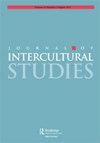艺术编织:一种综合的社会科学研究方法
IF 1
Q3 SOCIOLOGY
引用次数: 1
摘要
摘要本文提出了一种混乱的社会科学研究方法,该方法结合了艺术治疗工具和土著庭院——一个松散地翻译为复杂对话故事的概念。这种方法——Art Yarning——是一种创新的研究工具,反映并回应了澳大利亚土著人和非土著人与研究人员之间互动的复杂社会和研究现实。根据与维多利亚州Gunditjmara和Wathaurong国家土著社区的合作研究,我提出并讨论了Art Yarning作为一种“混乱”的方法(2004年法律):即,作为一种变化的、不确定的、缓慢的、适度的和多样的方法,只能提供有位置的、不完整的、暂时的知识——一种有价值的、,承认并尊重土著知识边界的令人谦卑的立场。Art Yarning优先考虑土著和视觉的认识方式,并挑战任何社会科学方法都可以提供完整、单一来源知识的有问题的信念。Art Yarning增强了参与者的土著身份感、治愈感,以及非土著参与者对土著知情方式的适应(Martin 2003)。通过减少研究中权力失衡的过程,获得了丰富的多层次新知识。至关重要的是,综合方法有助于在社会科学研究中向土著人民学习,而不是了解土著人民。本文章由计算机程序翻译,如有差异,请以英文原文为准。
Art Yarning: On an Integrated Social Science Research Method
ABSTRACT This article presents a messy social science research method that integrates art therapy tools and Indigenous yarning – a concept loosely translated as complex conversational storytelling. The method – Art Yarning – is an innovative research tool that mirrors and responds to the complex social and research realities in interactions between Indigenous and non-Indigenous people and researchers in Australia. Drawing on collaborative research with Indigenous communities on Gunditjmara and Wathaurong Countries in Victoria, I present and discuss Art Yarning as a ‘messy’ method (Law 2004): that is, as shifting, uncertain, slow, modest, and diverse, only capable of delivering situated, incomplete, temporary knowledge – a valuable, humbling position that recognises and respects boundaries around Indigenous knowledges. Art Yarning prioritises Indigenous and visual ways of knowing and challenges the problematic conviction that any social science method can deliver complete, single-source knowledge. Art Yarning enhanced participants’ sense of Indigenous identities, healing, and non-Indigenous participants’ adaptation to aspects of Indigenous ways of knowing-being-doing (Martin 2003). Rich multilayered new knowledge was achieved via processes that reduce power imbalance in research. Critically, the integrated method facilitates learning from, rather than learning about, Indigenous peoples in social science research.
求助全文
通过发布文献求助,成功后即可免费获取论文全文。
去求助
来源期刊

Journal of Intercultural Studies
SOCIOLOGY-
CiteScore
1.80
自引率
10.00%
发文量
67
期刊介绍:
Journal of Intercultural Studies showcases innovative scholarship about emerging cultural formations, intercultural negotiations and contemporary challenges to cultures and identities. It welcomes theoretically informed articles from diverse disciplines that contribute to the following discussions: -Reconceptualising notions of nationhood, citizenship and belonging; -Questioning theories of diaspora, transnationalism, hybridity and ‘border crossing’, and their contextualised applications; -Exploring the contemporary sociocultural formations of whiteness, ethnicity, racialization, postcolonialism and indigeneity -Examining how past and contemporary key scholars can inform current thinking on intercultural knowledge, multiculturalism, race and cultural identity. Journal of Intercultural Studies is an international, interdisciplinary journal that particularly encourages contributions from scholars in cultural studies, sociology, migration studies, literary studies, gender studies, anthropology, cultural geography, urban studies, race and ethnic studies.
 求助内容:
求助内容: 应助结果提醒方式:
应助结果提醒方式:


